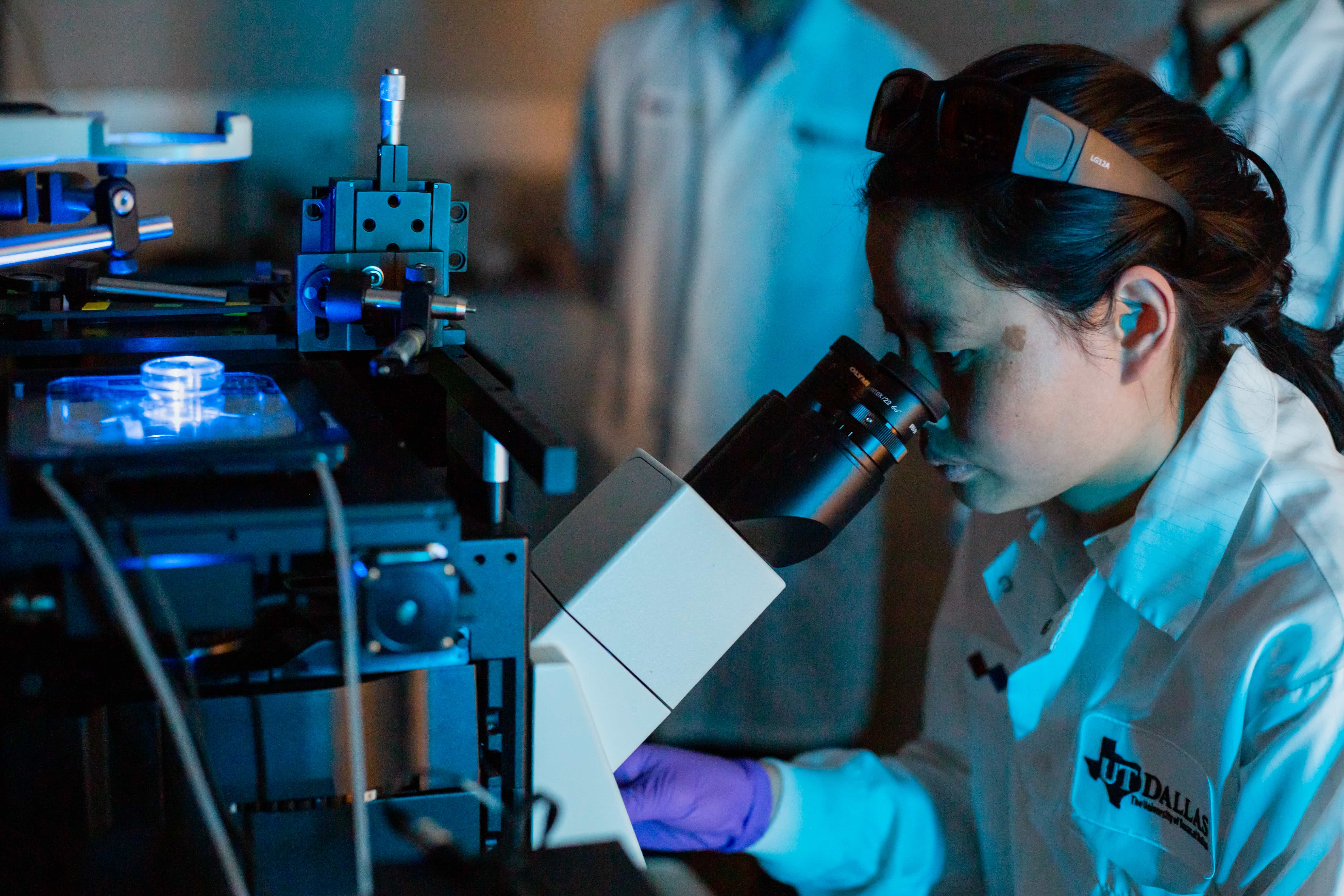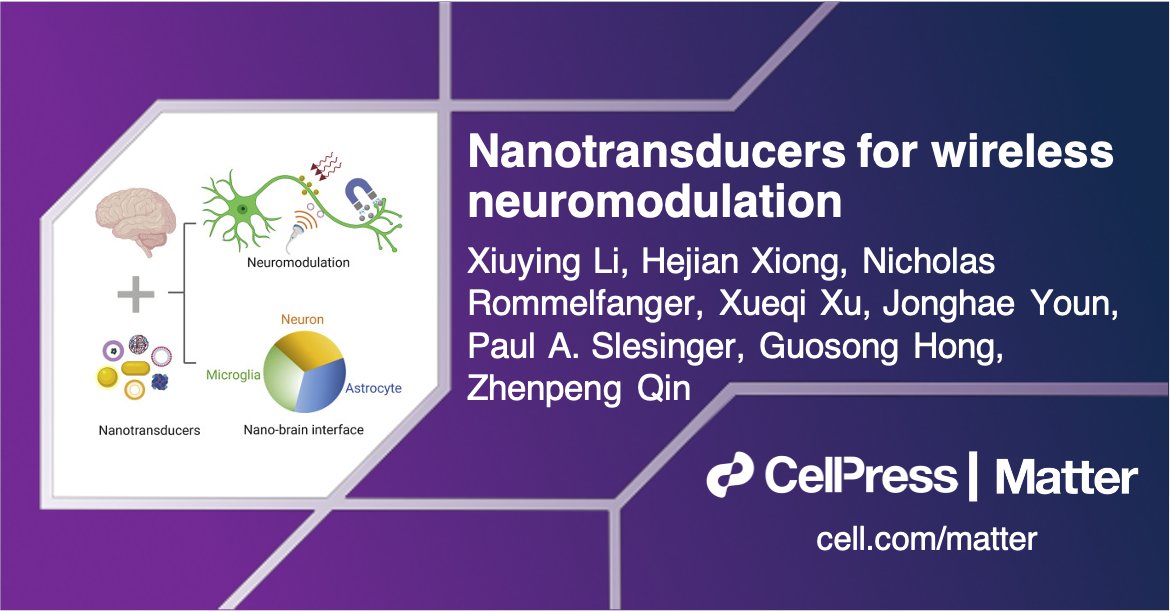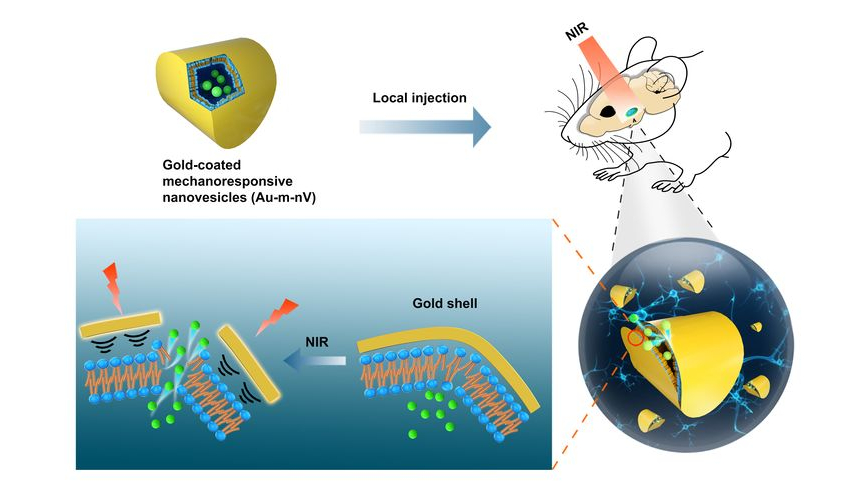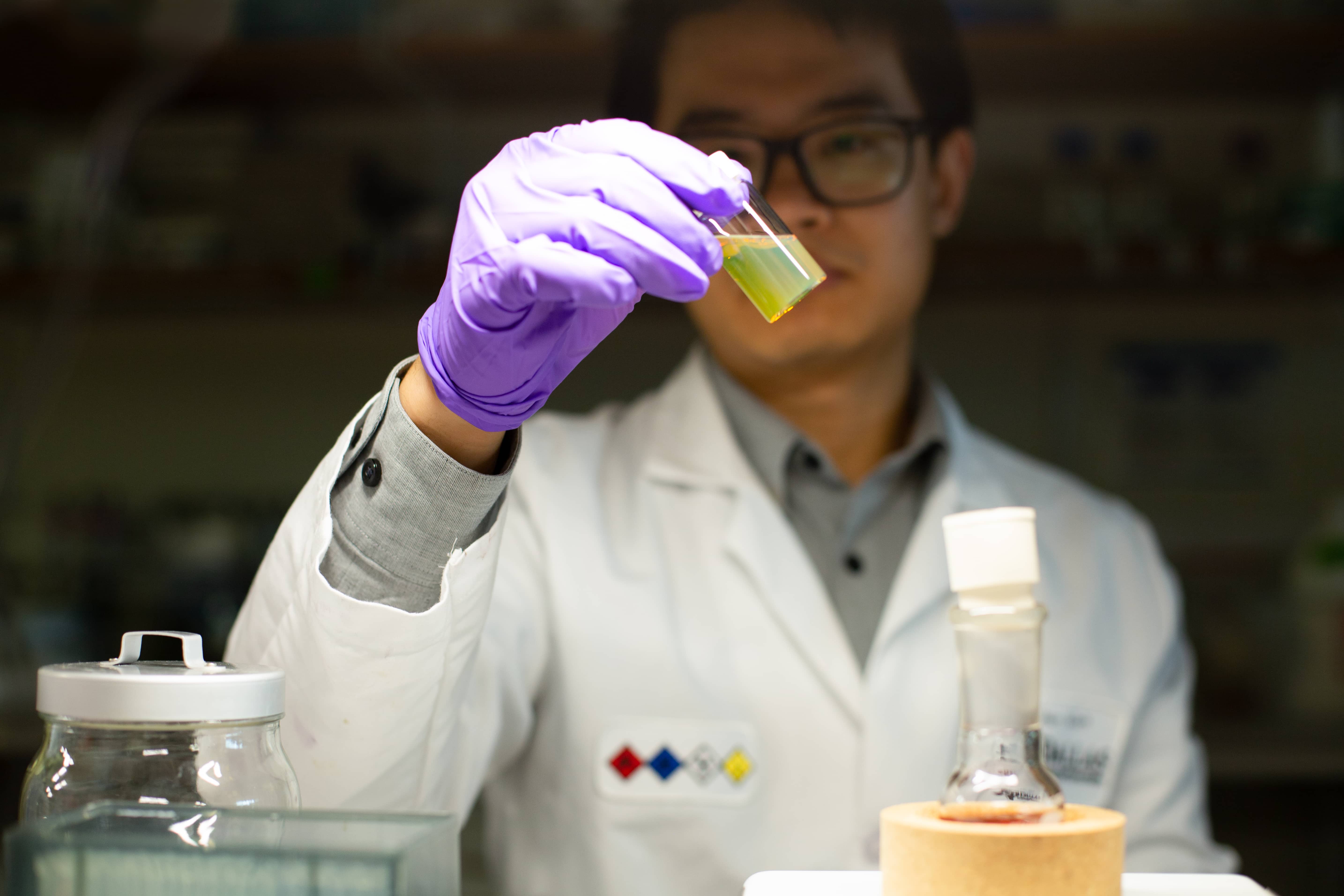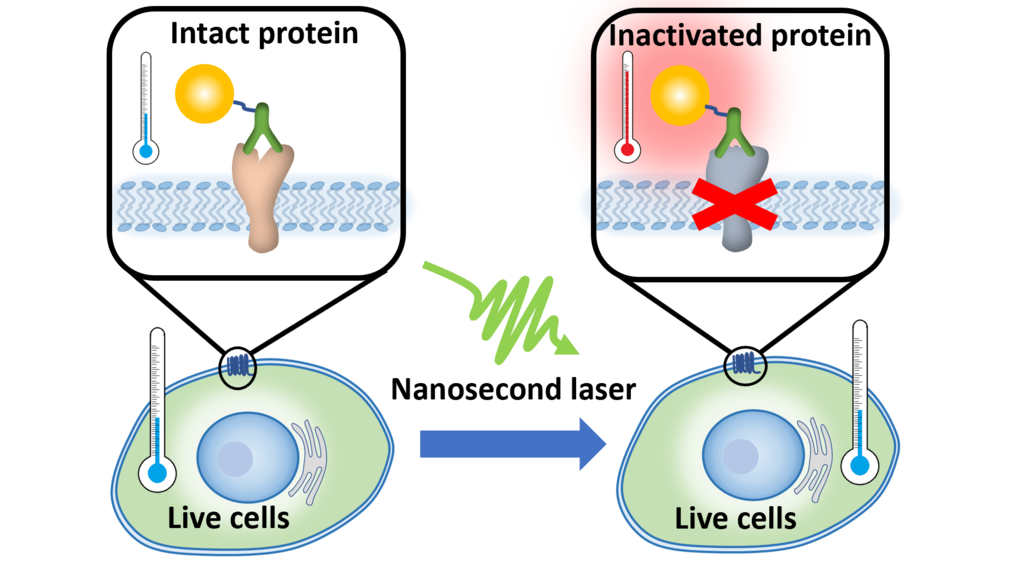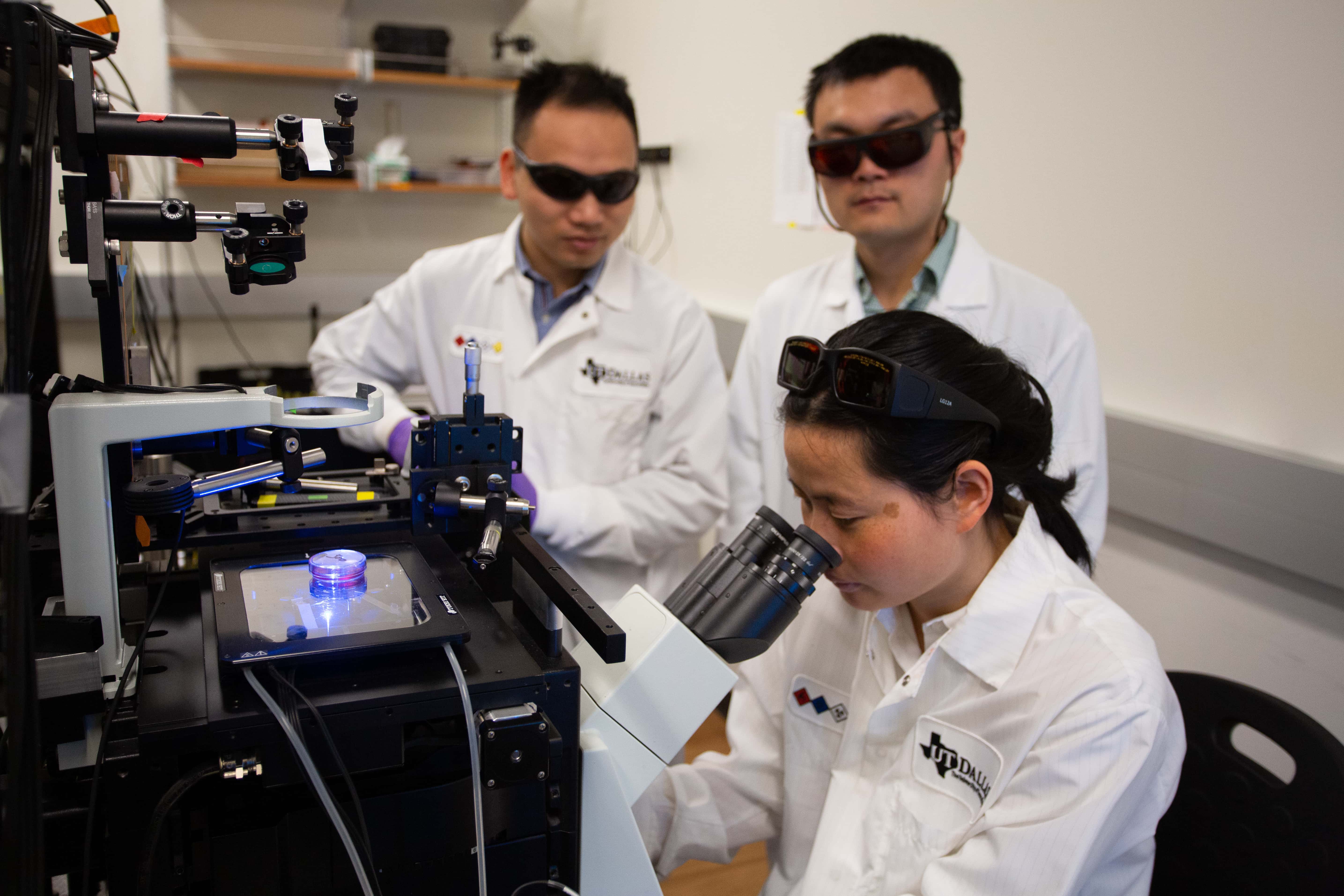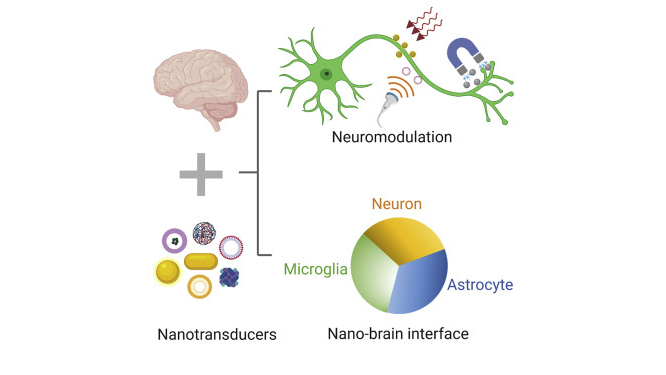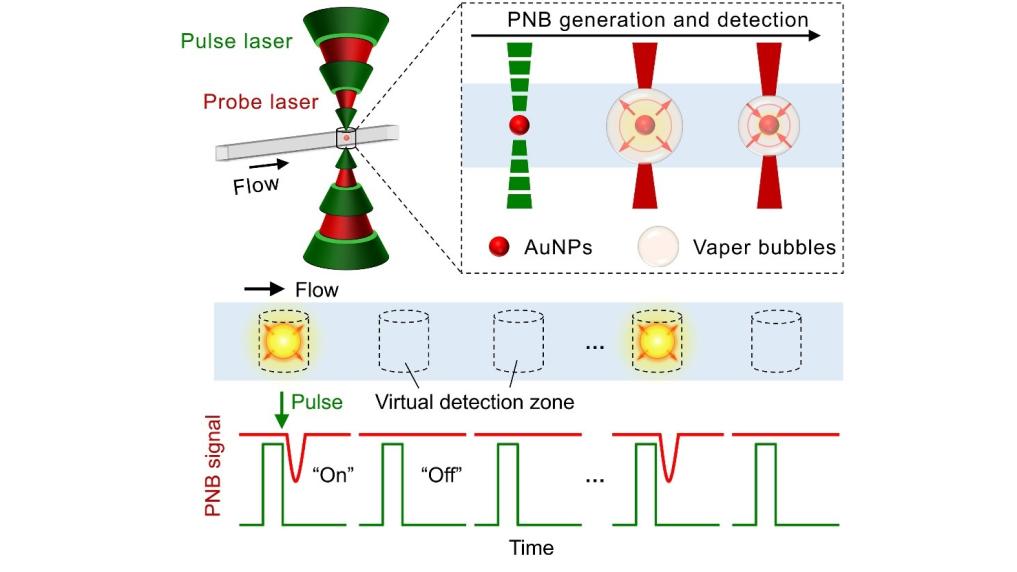NANO-THERMAL BIOENGINEERING LABORATORY
WHAT WE DO
The NanoBioengineering Laboratory focuses on fundamental understanding of biotansport issues for the brain and diagnostic systems, and develop nanotechnology-based approaches to better understand the brain and revolutionize point-of-care infectious disease diagnosis. Recent efforts focus on the laser-plasmonic nanoparticle interactions and its effects at the interface between biological systems and nanomaterials. Specifically, experimental techniques and methods have been developed to understand the effects of nanoparticle plasmonic heating on proteins and lipids immediately next to the nanoparticle. This has led to new enabling tools for optical protein manipulation and molecular uncaging for the brain, and innovative diagnostic methods.

THE SCIENCE
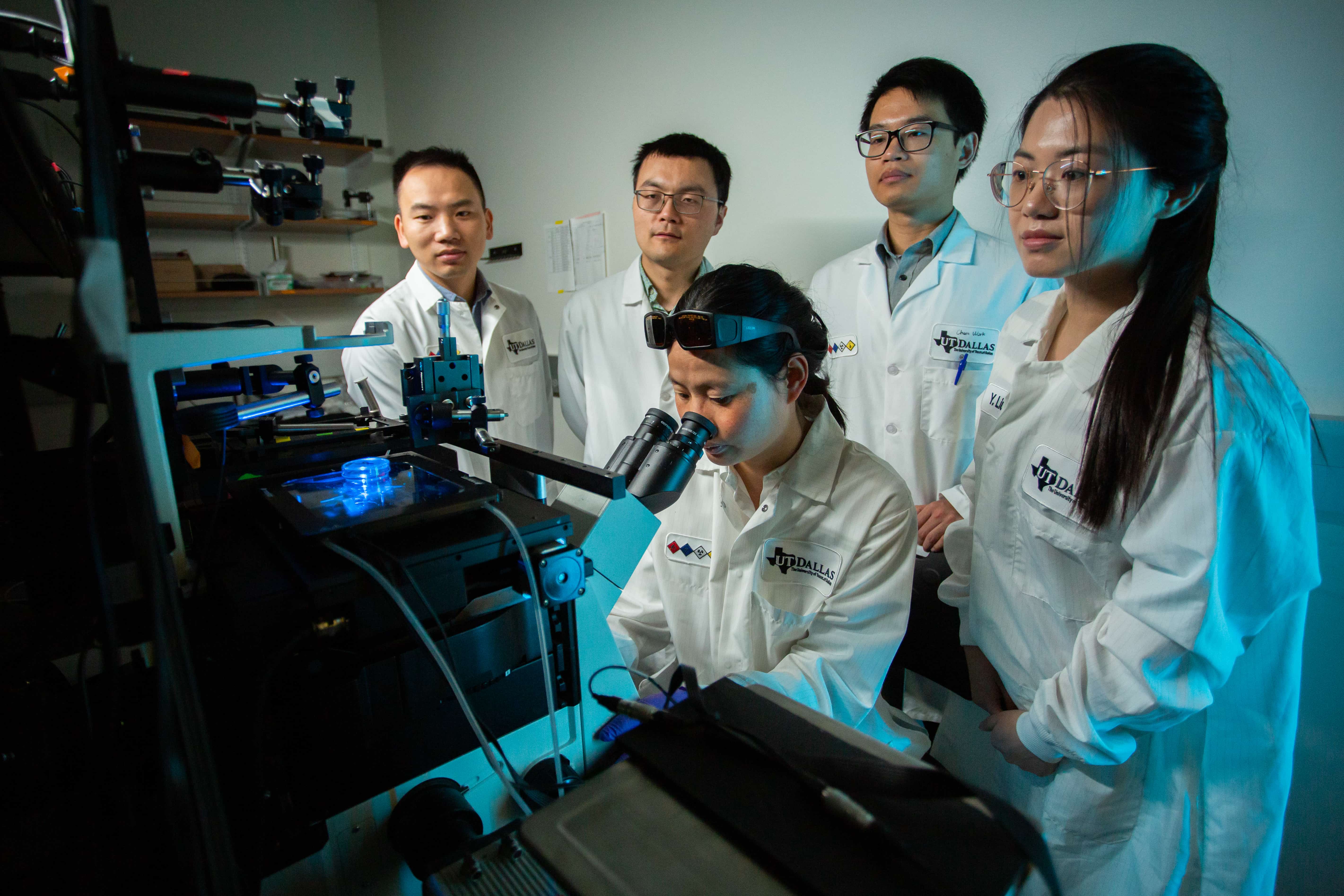
BRAIN BIOTRANSPORT
The burden of brain diseases has increased substantially over the last 25 years and will continue to grow in coming decades. Our brain is a complex system with blood flow and vessels that supply nutrients but restricts passage of most other molecules, and neuronal network that is maintained and modulated by the extracellular “chemical connectome”. The central question we pursue is: how does the molecular transport in the brain affect brain activity and function? By engineering new nanotechnologies, our long-term goal is to better understand the molecular transport and improve the treatment of brain diseases.
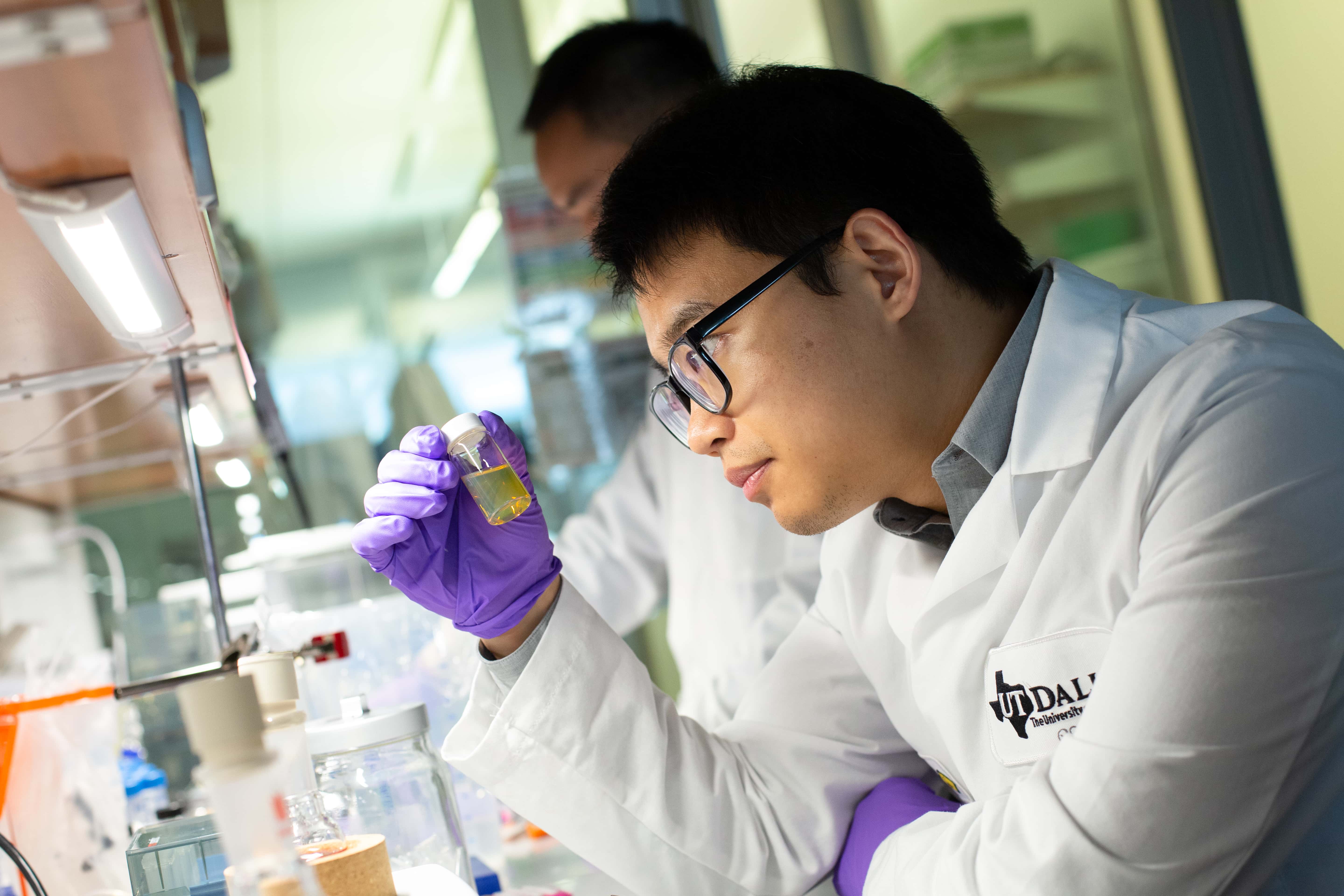
RESPIRATORY INFECTIOUS DISEASES DIAGNOSIS
Viral respiratory tract infection (VRTI) is the most common illness in humans and non-influenza-related VTRI costs over $40 billion annually in the United States alone. This includes respiratory syncytial virus (RSV), which is among the leading causes of pediatric death secondary to pneumonia worldwide and to date there is no available effective vaccine or antiviral therapy. Early and point-of-care (POC) diagnosis of RSV is critical to isolate infection reservoirs and inform treatment decisions. The central question we pursue is: how to diagnose infections with high sensitivity and specificity in the simplest and cost-effective way? By engineering novel and improving current POC diagnostic tests, our long-term goal is to transform the current practice of infectious disease diagnosis.
WHO WE ARE
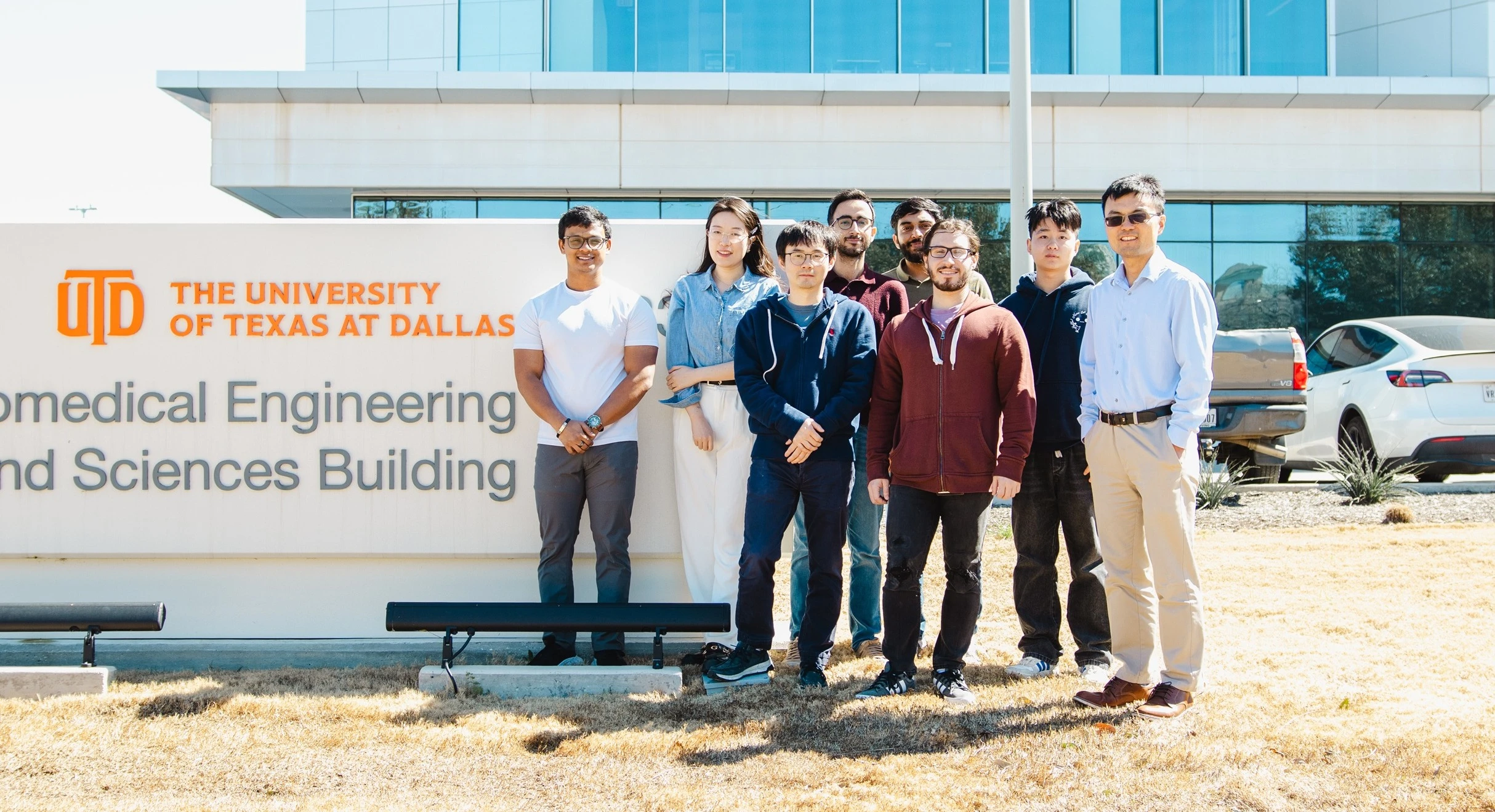
With the interdisciplinary nature of the work, our team consists of talented scientists with different backgrounds (engineering, biology, chemistry etc). We are affiliated with the Center for Advanced Pain Studies. The growth and success of our team members are our highest priority. We are always open to the most motivated individuals who can bring unique insight and expertise to join our laboratory.
Meet our PI and lab members.
We are hiring open-minded, ambitious PhD students to develop new nano-biotechnologies and tackle challenges in the brain.
To learn more about our hiring opportunities, click here.
RECENT NEWS
- 12/12/2024 Arindam Pal won the American Heart Association (AHA) Predoctoral Fellowship. Congratulations!
- 8/22/2024 Welcome to Peter Lin and Yu Zhang, new PhD students in Biomedical Engineering. Wish you the best in the fantastic years ahead!
- 8/22/2024 Harsh Dave won the Translational Technology Pitch Competition at 2024 Summer Biomechanics, Bioengineering,
and Biotransport Conference - 6/19/2024 Dr. Zhenpeng Qin's lab has moved to the new TI-BMES building on the UTSW campus. New opportunities await!
- 6/14/2024 Harsh Dave won the Translational Technology Pitch Competition at 2024 Summer Biomechanics, Bioengineering, and Biotransport Conference
- 6/7/2024 Dr. Amrita Chakraborty was selected as a recipient of the Provost’s Office Postdoctoral Appreciation Award. Congratulations!
- 4/30/2024 Journal article titled, "Regulating nanoscale directional heat transfer with Janus nanoparticles" was published in Nanoscale Advances. Congratulations!
- 4/24/2024 Dr. Yaning Liu received the Best Paper Award from UT Dallas' Department of Mechanical Engineering. Congratulations!
- 4/12/2024 Arindam Pal won the Mary and Richard Templeton Fellowship Congratulations!
- 4/9/2024 Journal article titled, "Plasmonic-Driven Regulation of Biomolecular Activity In Situ" was published in Annual Review Of Biomedical Engineering. Congratulations!
- 4/1/2024 Tingting Zhang received the SB3C 2024 Diversity Travel Award. Congratulations!
- 3/1/2024 Tingting Zhang's abstract was selected as a finalist for the 2024 SB3C PhD Level Student Paper Competition. Congratulations!
- 1/29/2024 Journal article titled, "Glioblastoma Margin as a Diffusion Barrier Revealed by Photoactivation of Plasmonic Nanovesicles," was published in Nano Letters. Congratulations!
Check out Newsroom for a full catalog of news from the lab.
RECENT PUBLICATIONS
Preprint
- Hejian Xiong, Blake A Wilson, Xiaoqian Ge, Xiaofei Gao, Qi Cai, Xueqi Xu, Robert Bachoo, Zhenpeng Qin
Glioblastoma Margin as a Diffusion Barrier Revealed by Photoactivation of Plasmonic Nanovesicles. bioRxiv (2023) -
Chen Xie, Blake Wilson, Zhenpeng Qin
Regulating Nanoscale Directional Heat Transfer with Janus Nanoparticles, arXiv. (2023)
-
Xiaoqian Ge, Xueqi Xu, Qi Cai, Hejian Xiong, Xie Chen, Yi Hong, Xiaofei Gao, Yao Yao, Robert Bachoo, Zhenpeng Qin
pan-ECM: Live Brain Extracellular Matrix Imaging with Protein-Reactive Dye, bioRxiv. (2023)
Journal Articles
- Chen Xie, Blake A. Wilson and Zhenpeng Qin "Regulating nanoscale directional heat transfer with Janus nanoparticles" was published in Nanoscale Advances (2024)
- Hejian Xiong, Blake A. Wilson, Xiaoqian Ge, Xiaofei Gao, Qi Cai, Xueqi Xu, Robert Bachoo, and Zhenpeng Qin
Glioblastoma Margin as a Diffusion Barrier Revealed by Photoactivation of Plasmonic Nanovesicles. Nano Letters (2024) - Qi Cai, Hanwen Fan, Xiaoqing Li, Monica Giannotta, Robert Bachoo, and Zhenpeng Qin
Optical Modulation of the Blood–Brain Barrier for Glioblastoma Treatment. Bio Protocol (2024)
Visit Publications to view our full list of journal articles and more.
SPONSORS
- National Science Foundation (NSF)
- National Institutes of Health (NIH)
- Cancer Prevention and Research Institute of Texas (CPRIT)
- Texas Medical Research Collaborative (TexasMRC)
- UT Brain Initiative
- Congressionally Directed Medical Research Programs
- American Heart Association
